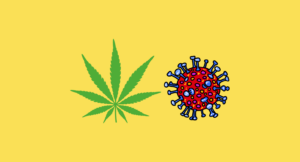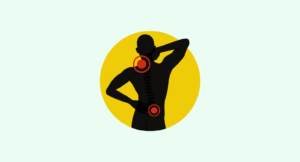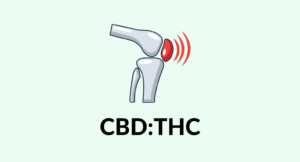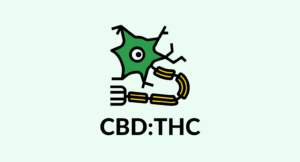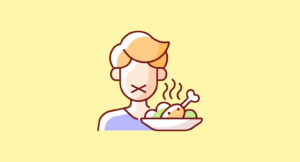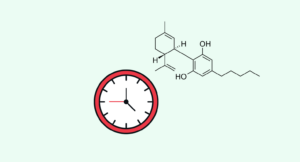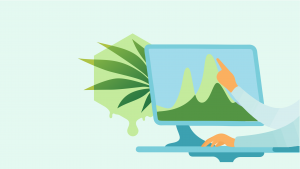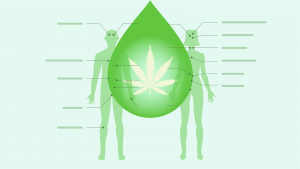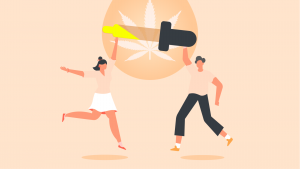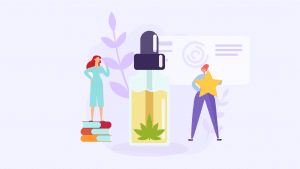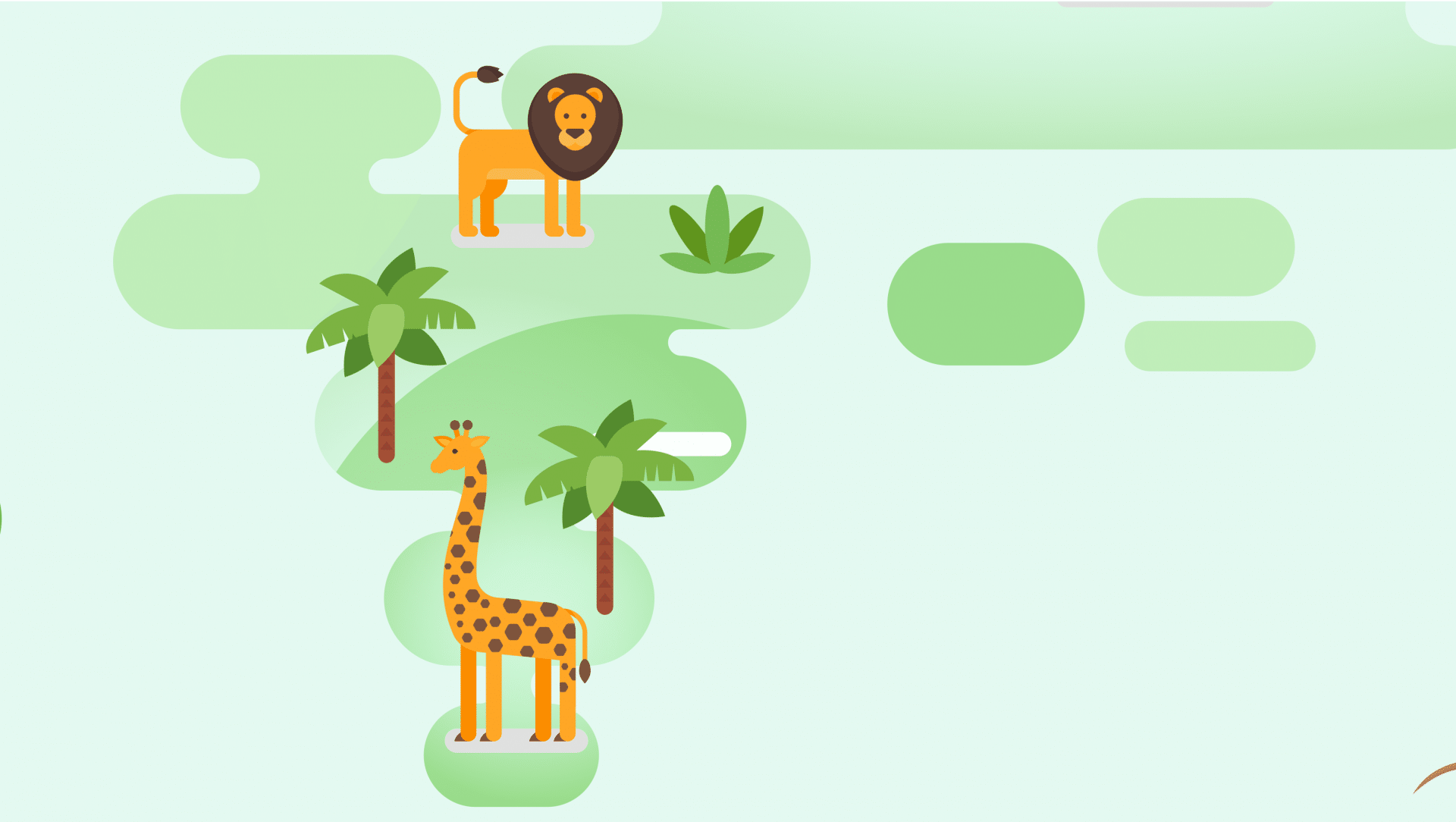
Guide to Buying CBD in Africa [2022 Edition]
CBD Laws By Country | Recommended Brands
South Africa allows CBD under certain conditions, but most African countries outright ban any and all cannabis extracts — including CBD.
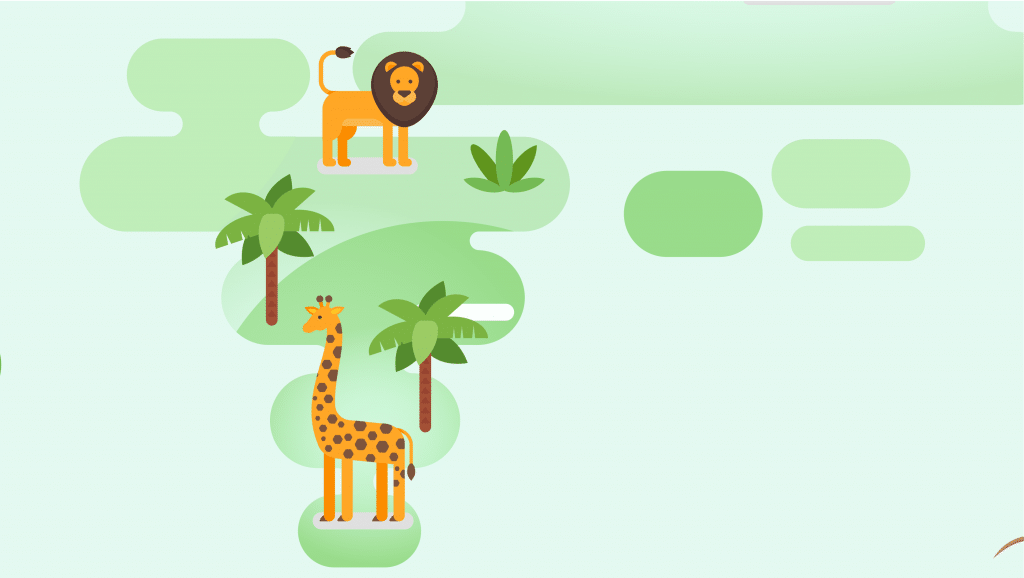
Afric has some of the harshest cannabis laws in the world despite having near-perfect climate conditions for growing cannabis and a long history of cannabis use.
However, there are a few countries investing in the emerging hemp and CBD markets — including South Africa.
In this article, we’ll take a closer look at the countries with a progressive outlook on hemp. Read through to learn the local regulations and get tips on how to buy CBD online and get it shipped to your door.
Buying CBD in Africa
Summary: Buying CBD in Africa
- CBD is very restricted in Africa
- You can buy CBD products in South Africa over-the-counter but must meet specific THC content limits
- Most African countries continue to ban any and all cannabis extracts — including CBD
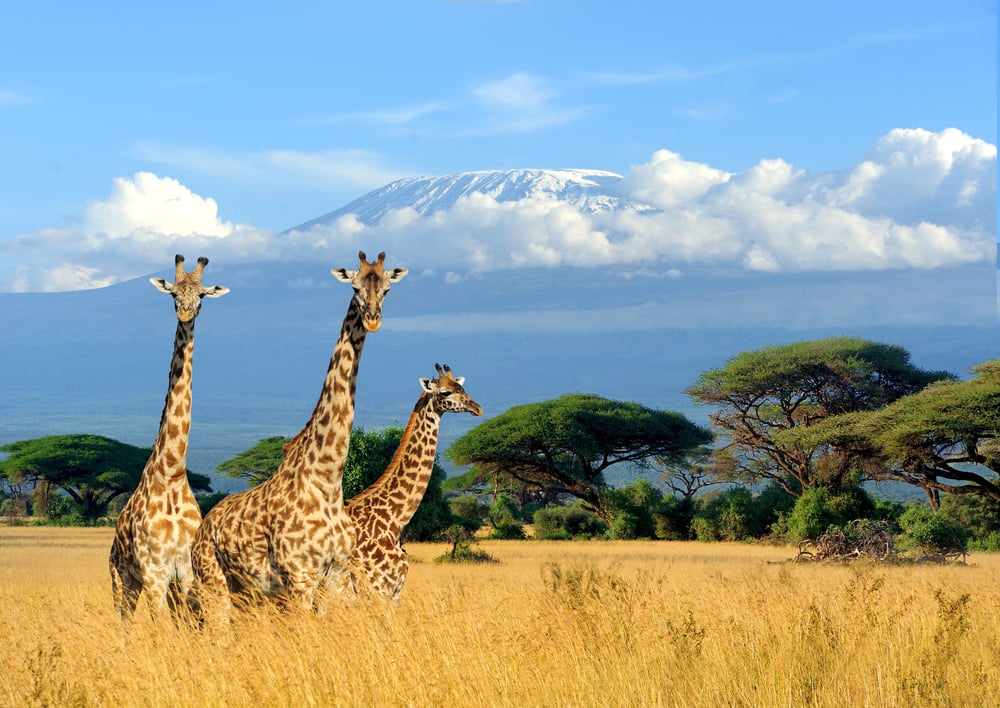
A Brief History of Cannabis Laws in Africa
Cannabis arrived in Africa and the Middle East through Asia via maritime and overland trading.
North Africans started growing hemp in the beginning of the 20th century. People from Mozambique and Madagascar used hemp to make cordage and medicine from the plant.
However, hemp wasn’t the prevalent form of cannabis in Africa. The primary use of cannabis in this region was for smoking, often used for social and religious purposes. For this purpose, marijuana plants are preferred to hemp.
In the Middle East, cannabis was primarily used for making hashish.
The cultivation of cannabis was legal in colonial Africa until 1925 when the plant was banned with the Geneva International Opium Convention — which came into effect in 1938.
Around the same time, Egypt suggested a ban on hemp and its derivatives, except for medical and scientific purposes. Regulators wanted to completely prohibit the use of the raw resin extracted from the tops of the female hemp plant.
India and other countries objected to the proposal, as hemp was part of their religious and social traditions. India also said it would be difficult to enact such a law due to the widespread growth of wild cannabis plants on the country’s territory.
The final agreement ended with a compromise that banned hemp exportation to countries that prohibit its use. The importing countries had to certificate the imported hemp as an “exclusively for medical or scientific purposes” product.
Today, cannabis laws in Africa remain strict in most places. Some countries in Africa allow hemp cultivation solely for its fiber and seeds (food products), while only a few countries permit the use of both hemp and marijuana for medical purposes.
South Africa makes a clear distinction between hemp and marijuana:
1. Marijuana — THC Over 0.2%
Both marijuana and hemp are technically the same species of plant — Cannabis sativa. They’re differentiated by the amount of active THC (tetrahydrocannabinol) each strain of cannabis produces.
Marijuana is any cannabis plant with a THC content higher than 0.2%. Some marijuana strains can contain up to 30% THC.
THC is the main cannabinoid from cannabis that produces the mind-altering effects associated with the plant.
2. Hemp — THC 0.3% or Less
Unlike marijuana, hemp contains an insignificant amount of THC (less than 0.3%) and does not cause a psychoactive high.
Hemp is one of the oldest crops in the world and has been used for centuries for fabrics, sails, clothes and shoes, sacks, food, and CBD extracts.
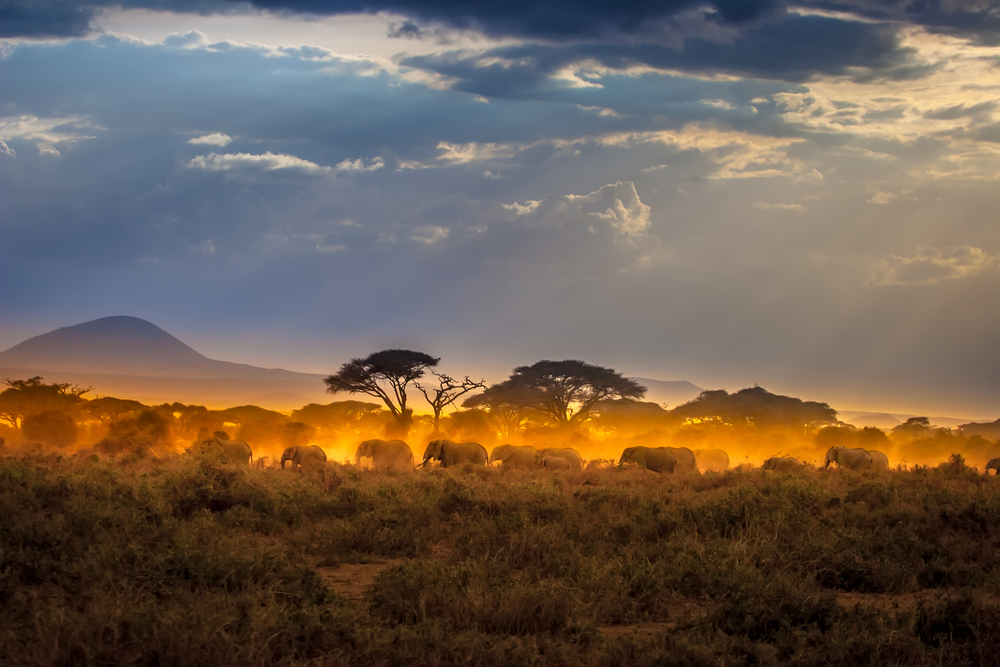
Is CBD Legal in Africa?
African country’s strict cannabis laws, and CBD regulations either don’t exist or restrict their use.
South Africa took a completely different direction when it comes to hemp and its derivatives. Neighboring countries in the Middle East like Lebanon could become the next country in line to update its laws, but legalization is still at least a year away.
1. Algeria
Verdict: Banned
Cannabis (both marijuana and hemp) has been used in Algeria for centuries and this tradition continues to live today. However, cannabis and its products are explicitly prohibited. Possession of any amount of cannabis can bring a jail sentence of 6 months to 2 years.
2. Angola
Verdict: Banned
Cannabis — locally known as liamba or diamba — has been used by the natives for centuries and has a cultural significance for the country. The law prohibits cannabis cultivation, possession, and use due to the illicit trade of the plant.
3. Benin
Verdict: Banned
Cannabis and its products are illegal in Benin.
4. Botswana
Verdict: Banned
Cannabis — called motokwane in Botswana — is entirely unlawful for cultivation, possession, and use.
Any individual caught in possession of less than 60 grams of cannabis can receive a sentence of 3 years imprisonment and a fine of 1000 pula ($92).
Laws might change soon as Botswana is influenced by South Africa and Zimbabwe, where CBD is legal for medical use and over the counter (S. Africa). Cannabis enthusiasts and organizations are advocating for hemp legalization.
5. Burkina Faso
Verdict: Banned
Cannabis in Burkina Faso is illegal.
6. Burundi
Verdict: Banned
Cannabis — locally known as chanvre a fumer (hemp for smoking) — is enirely illegal in Burundi. Cannabis cultivation, transport, or possession can be penalized with fines as high as $100 000.
7. Cameroon
Verdict: Banned
Cameroon has a long history of cannabis use. Although illegal, the local population is growing, processing, and selling cannabis freely due to weak law enforcement and police control in some parts of the country.
Women in Cameroon have used cannabis to relieve labor pain, and mixed parts of the plant in oil to use it as a hair tonic for growth.
Today, Cameroonians use cannabis in various forms — people smoke it, consume it in food, and infuse it in drinks.
In 2001, the BBC reported that Cameroon would legalize medical cannabis for HIV/AIDS and cancer treatment, and that cannabis medicines would be imported from Canada. The government hasn’t implemented any medical program and cannabis remains illegal.
8. Chad
Verdict: Banned
Cannabis is illegal in Chad. A United Nations report on cannabis in Africa from 2007 shows that although cannabis is illicitly grown in Chad, there haven’t been any seize actions since 2001.
9. Côte d’Ivoire
Verdict: Banned
Cannabis in Ivory Coast is illegal.
10. Egypt
Verdict: Banned
Cannabis has deep roots in the Egyptian culture — the plant has been used for centuries, and although banned, people use it even today. The Egyptians have used hemp as medicine as far back as 2000 BC.
Today, cannabis is entirely illegal. Penalties on possession can be harsh, and smuggling large amounts of cannabis is punishable by death.
In some parts of Egypt, people — aware of lack of law enforcement — consume cannabis in local cafes. This shouldn’t encourage you to purchase CBD — anything related to cannabis can put you in serious trouble.
11. Democratic Republic of Congo
Verdict: Banned
Cannabis in DR Congo is illegal, but it’s widely spread. The government has stated many times that they’re working hard to eradicate illicit cannabis plantations. However, DR Congo is known for its corrupt government, and cannabis and its derivatives remain illegal and highly uncontrolled.
12. Equatorial Guinea
Verdict: Banned
In Equatorial Guinea, cannabis is called “the sacred weed of the people,” and is of great cultural importance. Cannabis and its derivatives are illegal, but the police are tolerant eve when people consume it publicly.
13. Eritrea
Verdict: Banned
Like in most African countries, cannabis is outlawed in Eritrea.
The country’s authority bodies are highly corrupt, and cannabis possession is often penalized with bribes and hefty fines. Smuggling larger quantities of cannabis can lead to lengthy jail time, hefty fines, and even property confiscation.
14. Eswatini (formerly Swaziland)
Verdict: Legal for Medical Use
Eswatini is one of the few African countries that changed their cannabis laws in the 21st century.
In January 2019, the Eswatini government-licensed Profile Solutions Inc. to grow, process, and sell hemp for medical CBD in the next ten years.
Cannabis is widely grown in Eswatini by local farmers and smuggled to South Africa, Zimbabwe, and Europe. However, the licensed company remains the only farm to grow cannabis legally.
The law is still in its establishment phase, and there are no details on how patients will acquire CBD. The regulation also mentions general fines and imprisonment in case of law violation, but these remain undefined.
15. Ethiopia
Verdict: Banned
Although research estimates that Ethiopia’s cannabis market has a potential of $9.8 billion, cannabis remains entirely illegal in the country.
The plant is grown by locals illegally, but police continue their eradication actions.
Possession of any type of cannabis could put you in jail for six months.
16. Gabon
Verdict: Banned
Cannabis in Gabon is entirely illegal. Any action related to cannabis could land you in prison for a minimum of 6 months and a maximum of 2 years, along with a hefty fine.
17. The Gambia
Verdict: Banned
Although cannabis has been grown and used in the Gambia for centuries, it is entirely illegal. Any action related to cannabis is penalized and can lead to jail time (up to 7 years) and a fine.
18. Ghana
Verdict: Legal Grey Area – Restricted Lean
Ghana has an interesting cannabis history and culture. The West African country is the third-highest cannabis-using nation in the world and first in Africa. Cannabis has spread in Ghana in the 90s, mostly among young Rastafarians and students who believed cannabis would help them to study better and easier.
On the other hand, cannabis is known as a plant of the devil — people are very religious in Ghana and don’t accept the use of cannabis (even hemp).
Cannabis cannot be grown, sold, used, or imported without an authority’s permission. Patients can obtain a license from the Ministry of Health to use, cultivate, and import cannabis. However, cannabis is still not fully legalized for medical use and lives in the grey area.
NOTE: Don’t risk importing illegal cannabis products in Ghana!
Importing any cannabis-related product without a license by the Secretary for Health could land you a hefty fine or up to 10 years of imprisonment.
It’s best to wait until local laws are defined and regulated with clarity.
19. Guinea
Verdict: Banned
Any form of cannabis possession is illegal and can lead to severe penalties.
20. Guinea-Bissau
Verdict: Banned
Cannabis in Guinea-Bissau is outlawed but is grown and used by locals. Guinea-Bissau is used as a drug trafficking route between Latin America and Europe by Colombian drug cartels. Although Guinea-Bissau lacks law enforcement and police control, punishments for any cannabis-related action can be severe.
21. Kenya
Verdict: Banned
There have been discussions about the legalization of cannabis in Kenya, but nothing has changed yey. Any type of cannabis remains completely illegal.
23. Lesotho
Verdict: Legal for Medical Use
Lesotho is Africa’s medical cannabis pioneer. CBD is legal for medical use and mustn’t contain more than 0.03% THC.
Cultivation of cannabis for medical purposes is legal only with a government-issued license.
24. Liberia
Verdict: Banned
Cannabis is outlawed in Liberia.
25. Libya
Verdict: Banned
Cannabis is entirely illegal in Libya, and any action related to it can be severely punished.
26. Madagascar
Verdict: Banned
Cannabis in Madagascar is entirely illegal — but is widely used among the population. Most reports suggest that cannabis, including CBD, is rarely enforced within the countries borders. This is usually the first step before legalization or decriminalization is discussed by local government.
27. Malawi
Verdict: Banned
Cannabis is prohibited in Malawi. Hemp supporters are advocating for hemp legalization, but anti-drug activists consider this a threat and say that marijuana growers would abuse the law.
28. Mali
Verdict: Banned
Due to Mali’s status of a drug trafficking country, any action related to cannabis is considered a violation of the law and can be severely punished.
29. Mauritania
Verdict: Banned
Mauritania is known as the transit point for cannabis smuggled from Morocco to Europe. Cannabis is outlawed, and possession for personal use is punished with a maximum of two years imprisonment and a $140-$280 fine. Individuals caught with cannabis are reported to health authorities and sent to mandatory detoxification.
30. Morocco
Verdict: Banned
Morocco is one of the African countries with the longest history of cannabis use, and Moroccans consume it even today.
Cannabis is outlawed, but it’s partially tolerated in the country — Morocco is one of the leaders in hashish production.
There’s been an ongoing debate among politicians and governing bodies for cannabis and CBD legalization, but laws remain unchanged.
Although banned by the drug law from 1974, the government allows farmers to have small cannabis farms in the Rif region. Cannabis is also openly sold to tourists and exported to Europe.
You can find cannabis and CBD in Morocco, but this doesn’t mean that it’s legal — penalties on drug possession and use are harsh and can lead to hefty fines and lengthy prison sentences (5 to 10 years).
Refrain from buying illegal cannabis products in Morocco.
31. Mozambique
Verdict: Banned
Cannabis is banned in Mozambique but widely used by locals. However, possession of cannabis can lead to hefty fines — there’s a lot of corruption in Mozambique, and individuals caught in cannabis possession often pay a bribe to avoid an arrest.
As a cannabis derivative, CBD is also prohibited.
32. Namibia
Verdict: Banned
Cannabis — locally called dagga — is prohibited by law. Rastafarians and other cannabis supporters have been advocating for cannabis and CBD legalization, but nothing has changed. Possession of any amount of cannabis can lead to a prison sentence.
33. Niger
Verdict: Banned
Cannabis in Niger is outlawed, though grown by locals and drug traffickers. The law is stringent, and any action related to cannabis (including possession and use) can be penalized with 5-10 years of prison and fined with $2000 to $4000.
CBD is illegal.
34. Nigeria
Verdict: Banned
The Indian Hemp Decree No.34 prohibits cannabis in Nigeria from 1975. Use and possession of cannabis can bring a jail sentence for not less than six months, and a fine of $300.
CBD is a cannabis derivative and therefore, it’s illegal.
35. Rwanda
Verdict: Banned
The law in Rwanda prohibits any action related to any type of cannabis. Penalties can be severe, with up to 5 years of imprisonment and a $500 fine. In 2010, the Ministry of Health proposed a bill for the legalization of medical cannabis, but it seems that the bill stays up in the air.
There’s no specific law that regulates CBD, but as a cannabis derivative, it is illegal.
36. Senegal
Verdict: Banned
Despite its cultural and economic importance, cannabis in Senegal is prohibited by law. Many locals defy prohibition and grow cannabis illegally. Cannabis possession and public use can lead to an arrest.
37. Sierra Leone
Verdict: Banned
Cannabis and CBD are outlawed in Sierra Leone, and possession of cannabis in any form can lead to a prison sentence of up to 5 years.
38. Somalia
Verdict: Banned
Some reports show that locals in Somalia use hemp for its seeds for food, and hashish. By law, any use of cannabis is illegal.
39. South Africa
Verdict: Temporarily Permitted
In South Africa, medical CBD products have been legal for some time already. In May 2019, Aaron Motsoaledi, the then Minister of Health, changed the Medicines and Related Substances Act of 1965 by removing CBD compounds from the list of harmful substances.
The new law, valid until the end of May 2020, allows the sale and use of CBD products over-the-counter.
To be considered legal in South Africa, hemp supplements must:
- Contain a maximum daily dose of 20 milligrams of CBD
- Alternatively, if the CBD product is made from raw cannabis, it cannot contain more than 0.001% of THC and no more than 0.0075% total CBD
- CBD products cannot be advertised as a cure or treatment for any disease
Buying CBD products that don’t remain within the limits listed above require a prescription.
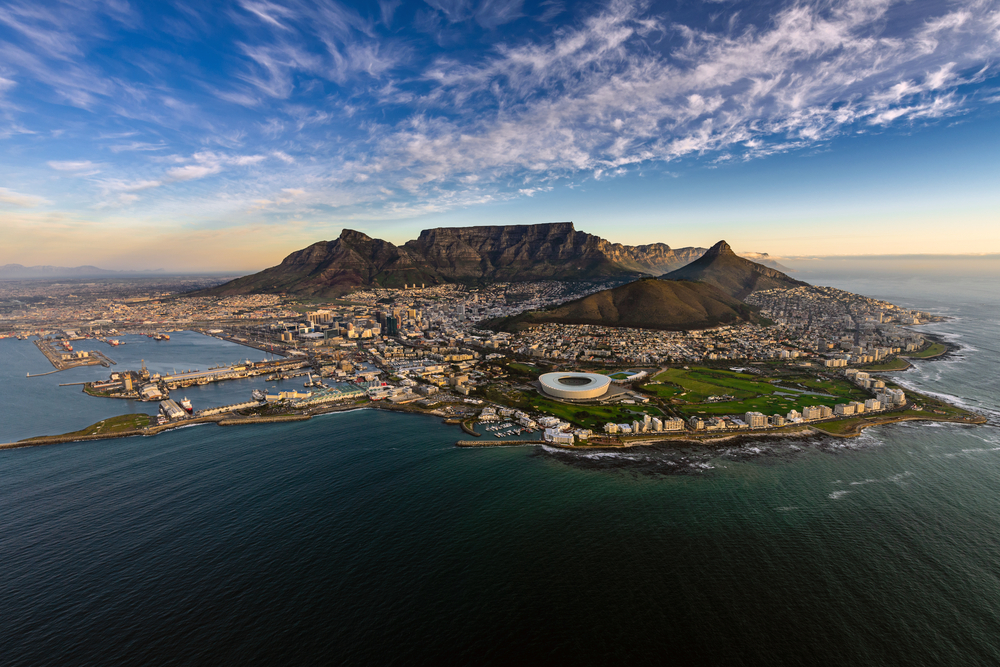
40. Sudan
Verdict: Banned
Cannabis is entirely illegal in Sudan, and possession of any form of cannabis can lead to a prison sentence of 7 years.
41. Tanzania
Verdict: Banned
CBD in Tanzania is not differentiated from cannabis and is therefore illegal, just like the plant. Possession of 50 grams of cannabis, and 5 grams of hashish can lead to a prison sentence of 3 years, and a fine of $500.
42. The Central African Republic (CAR)
Verdict: Banned
Cannabis in the CAR is illegal.
43. The Congo
Verdict: Banned
Cannabis is entirely illegal.
44. Togo
Verdict: Banned
Cannabis is entirely illegal in Togo, and possessing even a small amount of any form of cannabis could lead to a jail sentence.
45. Uganda
Verdict: Banned
Uganda is producing hemp for medical purposes — but only for export. CBD and other cannabis-based medicines remain unavailable and illegal for locals.
46. Zambia
Verdict: Banned
CBD in Zambia is not regulated with a specific law, but as a derivative of cannabis, it’s entirely illegal.
47. Zimbabwe
Verdict: Legal for Medical Use
Cultivation of low-THC hemp is legal, and CBD is authorized for medical use. Despite the country’s progressive move, there is still no medical cannabis program, and patients don’t know how to apply for a medical permit for CBD.
We’ll update you if there are any future changes on how to obtain medical CBD.
How to Buy CBD Products in Africa
The availability of CBD in Africa is highly restricted. Currently, the only countries with progressive laws are South Africa, Zimbabwe, Lesotho, and Eswatini — where you can buy CBD legally under specific criteria. Other countries like Madagascar currently ban any cannabis, but rarely enforce these laws.
The CBD market is new in the region, and governments haven’t defined product regulations yet. You can purchase CBD in-store and online, but be aware that products can differ in quality, safety, and legality.
1. Buying CBD In-Store in Africa
If you live in South Africa, you can find hundreds of new products available on the store shelves. CBD is sold in one-stop shops, vape stores, and organic health and food stores.
Pros & Cons of Buying CBD In-Store in Africa
| Pros | Cons |
|---|---|
|
|
2. Buying CBD Online in Africa
CBD is a freshly introduced product on the African continent, and import rules are hanging in the air.
South Africa has upper limits for CBD, and importing any CBD products that don’t fall within that limit could be a violation of two laws — the Illicit drug laws and the Medicines law.
Online shopping is a boon to many CBD buyers, but it has its downsides too.
Buying CBD from online stores is advantageous for several reasons:
1. Great Selection of Products
First of all, you can find hundreds of great online stores selling top-notch CBD. Most online stores have a wide range of CBD products. Buying online also gives you the chance to buy from companies operating in other countries — which is very important for the next few years as European and North American markets offer significantly more selection these days than Africa.
The majority of CBD companies these days operate out of the United States and Europe.
2. You Can Shop Around & Read Reviews Before You Buy
When you shop online, you can read through customer reviews and recommendations — this can help you assess the quality of a product before you spend your hard-earned money.
3. You Can Have Your CBD Delivered Straight To Your Doorstep
Most online stores ship CBD worldwide, meaning you would receive your package at your door. Another benefit is that you can shop for CBD at any time and from anywhere you want.
Pros & Cons of Buying CBD Online in Africa
| Pros | Cons |
|---|---|
|
|
What to Do if CBD Companies Don’t Ship to Your Country
The African CBD market is still in its infancy — which means there aren’t a lot of companies operating in this region yet.
Therefore, if you’re looking to buy CBD, you’ll have a much better selection when shopping online from companies operating out of the United States, or Europe.
However, the CBD company you want to order from may not ship to your country of residence. This could be due to laws, or other reasons, so always make sure to double-check the laws for your country before moving on to the next step.
If you’ve reviewed local laws, and it’s within your right to order hemp products from overseas, the next step is to use a mail forwarding service to get the company you’re looking to buy form to ship to your door.
How Mail Forwarding Works
Step 1: Register an Account
First, go to the mail forwarding company’s website to register an account. If ordering from Europe, we recommend using Skypax. If ordering from the USA, Shipito is a good option.
Once you register, you’ll receive a local address that you can use as a delivery address for your online orders. This address will be based in either the United States or the United Kingdom.
Step 2: Place Your Order
The next step is to place your order for the hemp products you want to buy.
During checkout, enter the address given to you by the mail forwarding service. When the package arrives at this address, staff from the mail forwarding company will place new stamps on it and forward the mail to your home address.
If you live in a country with highly restrictive hemp and CBD laws, you should avoid importing any illegal products. Mail forwarding is conducted discreetly, but that doesn’t always mean your product won’t be seized.
CBD Companies That Ship to Africa
- Healthy Hemp Oil
- BioCBD+
- Ananda Hemp
- PhytoPlusCBD
- Blue Moon Hemp
- Cannuka
- Endoca
- Hemp Bombs
The Future of CBD in Africa
African countries generally have a very negative view on cannabis — including hemp. The undefined regulations and the strict hemp laws obstruct the placement of CBD on the regional market, as well as its use.
South Africa is giving hope that things will change in the future, as the two countries already make a distinction between psychoactive marijuana and non-psychoactive hemp. Their laws are much friendlier to hemp than most of the other countries in the region.
Lesotho and Lebanon could also bring a change in the region in the near future. I 2017, Lesotho started granting licenses for medical cannabis cultivation, and Lebanon is discussing medical cannabis legalization as we speak.
The future of CBD in the African region remains unpredictable. The region has favorable climate conditions and long-term cannabis culture could drive a lot of wealth in the region.
However, the highly unregulated laws, absence of scientific research, and the negative stigma around cannabis continues to slow any progress towards legalization in the region.
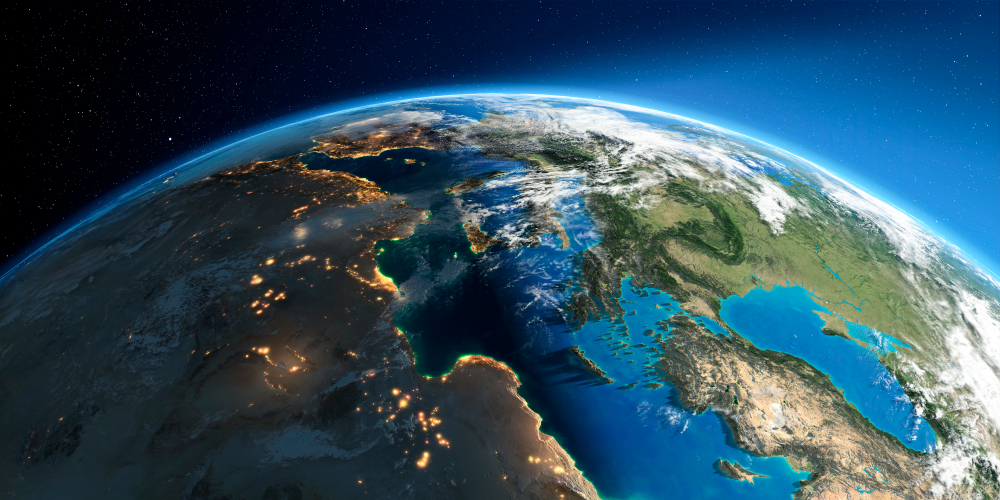
Final Thoughts: Buying CBD in Africa
If you live in Africa2, you should refrain from buying CBD products — however, this is likely to change in the next few years as places like South Africa continue to develop more relaxed laws to non-psychoactive hemp-based products.
Currently, CBD is an illegal product in most countries unless given explicit medical exceptions. Buying the cannabinoid online could put you in trouble with the law.
Buying it from the black market is even more dangerous. You would not only risk a hefty fine or jail time but also your well-being — no one regulates the safety and quality of CBD on the black market.
If you live in South Africa, you can purchase CBD in a local pharmacy via prescription, or buy it from approved stores locally.
Make sure the product’s content is within legal limits before you purchase it — which is 0.2% THC for South Africa. Pay extra attention if ordering from US-based companies, as the legal limit here is 0.3% instead.
CBD Laws Where You Live
What Type of CBD Products Are You Looking For?
Signup to our newsletter
Be the first to know about our newest arrivals and special offers!
